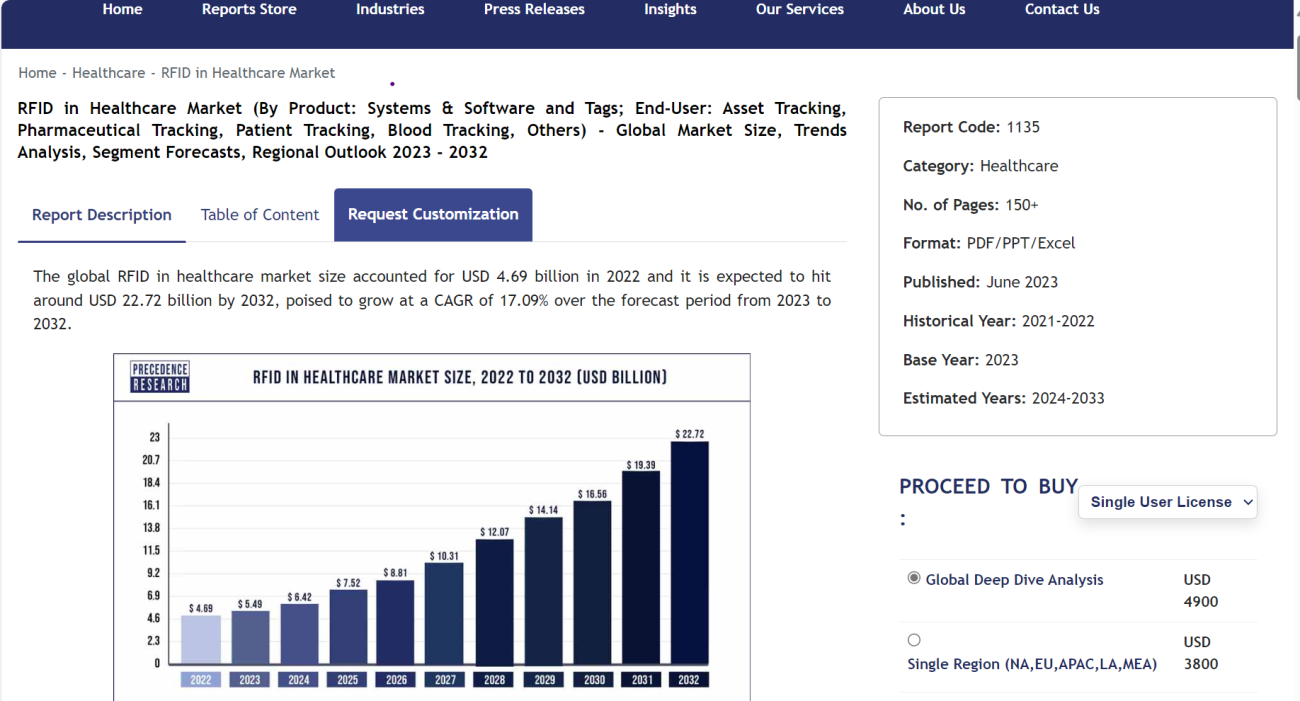
The global RFID in healthcare market is witnessing remarkable growth, with a projected value of USD 7 billion by 2032, growing at a CAGR of 17.09% from 2023 to 2032. North America leads the market, while the Asia Pacific region is expected to experience the fastest growth. Tags are the primary revenue generator, particularly in pharmaceutical tracking applications. In the U.S., the RFID in healthcare market is set to reach USD 3.2 billion by 2032, driven by a substantial number of hospitals and stringent patient safety regulations. Europe follows North America closely, benefitting from government support and robust healthcare infrastructure development.
RFID technology in healthcare is poised for significant expansion, driven by factors such as efficient inventory management, enhanced patient security, and the implementation of automated processes in pharmacies and hospitals. Major players are focusing on product innovations and strategic partnerships to strengthen their market presence. Passive tags, with their low cost and extended lifetime, are anticipated to gain prominence overactive tags.
Pharmaceutical tracking emerges as a crucial application, addressing concerns related to counterfeit drugs and inventory management inefficiencies. The technology aids in detecting and screening counterfeit drugs, minimizing labelling errors, and reducing waste. Major companies in the RFID in healthcare market are introducing advanced technologies in tags and gateways to drive market growth.
The market segmentation enables a comprehensive assessment of trends and revenue estimation across various product categories, applications, and regions. From North America to Europe, Asia Pacific, and beyond, RFID technology is revolutionizing healthcare operations, driving efficiency, and enhancing patient safety. Major Key players include Honeywell International Inc., STiD RFID.CAEN RFID S.r.l., Alien Technology Corporation, Impinj Inc Mobile Aspects Inc., Motorola Solutions Inc. and GAO RFID.
